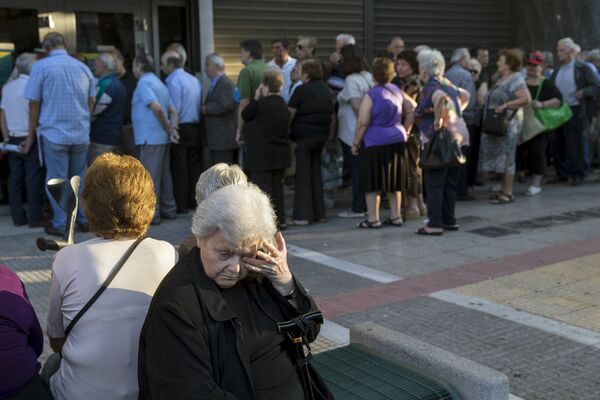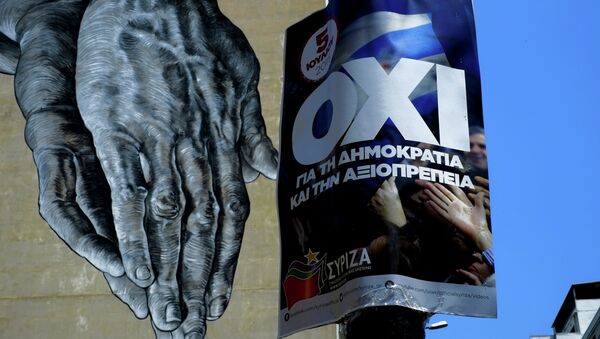The bank shutters are down, food shelves are running low and tourists are being warned of "shortages on the shelves." Constantine Michalos, president of Athens Chamber of Commerce said holiday makers could be left without the "basics" like food and medicines.
Mr Michalos said shops will begin to close on Friday, unable to reopen because they can't import products because of capital controls in Greece.
But the legacy is not just a visual one — it's fast becoming a virtual one.
Greek cards are no longer working to fund PayPal, Amazon or iTunes. According to e-commerce news site, TameBay, "This effectively means that you can no longer sell to Greece unless they have credit cards issued from outside Greece.
"We'd like to emphasize this isn't a decision taken by PayPal, Amazon, iTunes and other payment providers, they are in all likelihood more than keen to carry on serving their Greek customers. However, if their customers are prevented from funding their accounts, there's little the payment providers can do."
Paypal have confirmed the issues to TameBay: "We are carefully monitoring the situation in Greece and the progress of negotiations between the Greek government and its lenders.
"Due to the recent decisions of the Greek authorities on capital controls, funding of a PayPal wallet from Greek bank accounts, as well as cross-border transactions, funded by any cards or bank accounts are currently not available," PalPal said in a statement.

"Any Greek business which relies on services from outside Greece is totally stuffed. For instance if they can't pay their bills for Amazon Web Services they're about to lose their website and computing capabilities," said Tambay.
The people who are struggling, standing in queues at banks & ATMs, know that we're fighting for a viable & dignified solution. #Greece #OXI
— Alexis Tsipras (@tsipras_eu) July 2, 2015
The Greek government has missed the deadline to repay its $1.7 billion (€1.6bn) debt to the International Monetary Fund (IMF), becoming the first developed country to default.
The IMF has admitted Greece needs another $55 billion (50 billion euros) in debt relief but Greek Prime Minister Alexis Tsipras is urging people to reject "blackmail" ahead of one of the most important votes in Greek modern history.
Address the nation on Greek TV, Tsipras said the 'Yes' or 'No' vote wasn't about choosing a euro or a drachma, adding that a 'No' decision would not be a Grexit — but a continuation of negotiations with the Troika on better terms.
But speaking out for Greece, MP for Brighton and former leader of Britain's Green Party, Caroline Lucas said: "The Troika's intransigence on austerity amounts to nothing short of an attempted coup."
Writing in the Independent newspaper in the UK, Lucas says the story behind the headlines is one of "a country besieged by tragedy."
"People in Greece are suffering. Over 40 percent of children are living in poverty… a quarter of the workforce is unemployed and over half of young people don't have a job […] A democratically elected Government is being backed in a corner by the servants of capital who are desperate to embarrass the Greek electorate for daring to question austerity."
"For those who believe in the EU as a body which should uphold human rights and value solidarity, this bullying is particularly repulsive."
The people are set to take part in a referendum on Sunday and choose whether the country should accept a rescue package to help it keep the European single currency. Meanwhile, Greece's highest court has heard a case from two citizens who are seeking to get Sunday's referendum ruled unconstitutional and cancelled.
Greece's economic fate is in the hands of the people. In just two days' time they, whether they want to or not, will decide.
But regardless of the result, the legacy, virtual and real, will also include a nation divided.




